Glow-getter: Cerith Wyn Evans' Tate Britain installation is a neon knock-out
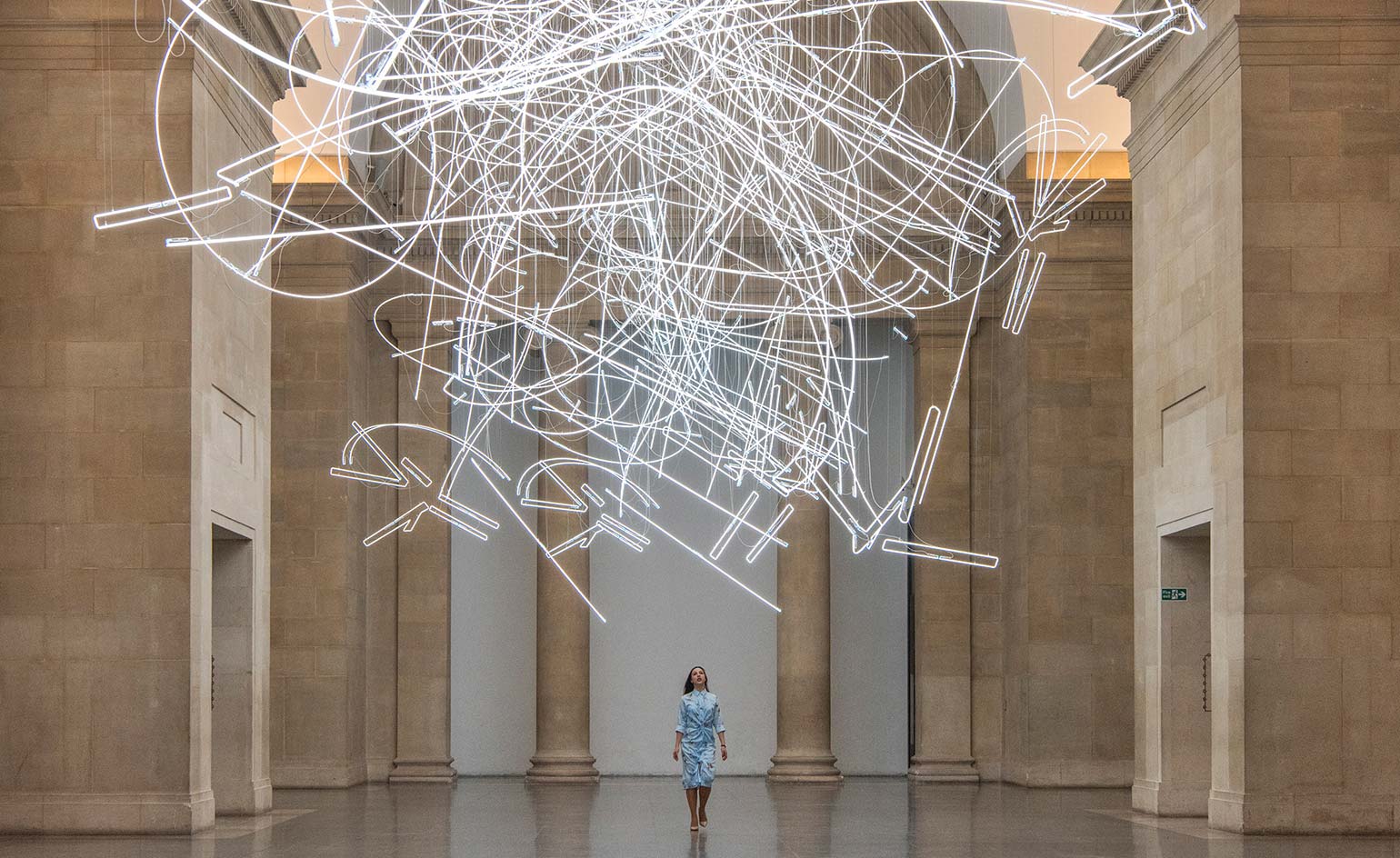
Welsh artist Cerith Wyn Evans is more familiar than most with London's Tate Britain. He strolled its iconic galleries as a guard in the late seventies, while studying at Central St Martins. With a beautiful sense of symmetry, he has returned 40 years later, as a much celebrated artist.
Wyn Evans' new masterwork, Forms in Space...by Light (in Time), fills and stretches the Duveen Galleries. Annually, Tate Britain invite an artist to develop a work in response to the grand neo-classical hall, that addresses the heritage of the space as a sculpture gallery.
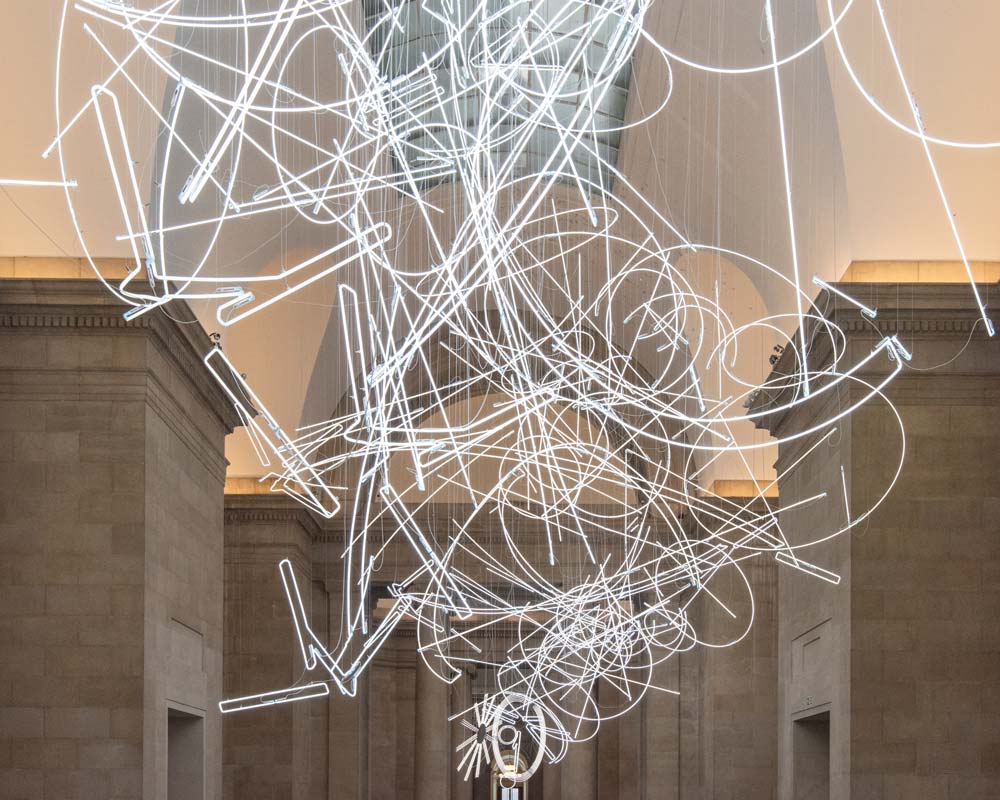
'Cerith's installation sits beautifully within the space, unfolding as you walk through,' explains Clarrie Wallis, Tate's Senior Curator of Contemporary British Art. The neon experience builds, from a single 'peep hole' ring in the South Duveens, through which you can glimpse swirls of radial light and an imposing octagon in the central gallery. The fractured neon fragments look like frantically drawn sparkler-lines on fireworks night.
But there's method and logic within these celestial scribbles. Hidden in the design are references to a host of highbrow sources, from Japanese 'Noh' theatre, to Marcel Duchamp's The Bride Stripped Bare by her Bachelors, Even (The Large Glass), 1915-23. Don't worry if you missed them. The beauty of rendering precise (verging on obscure) references in such a celebratory neon explosion allows for multiple - if not endless - interpretations.
Each way you look at the sprawling 2km of neon tubing, a different shape or symbol emerges. No small thanks to the elegant way in which the structures have been painstakingly suspended. 'There were over 1000 fixing points, and obviously we couldn't drill 1000 holes in the Grade II listed building,' Wallis explains. 'We had to work with structural engineers very intensely, so as to be completely happy and convinced that we would be able to remove it without damaging the fabric of the building.'
Though it seems too soon to be discussing the installation's removal, Wallis has a point. It's a visibly fragile, delicate sculpture - whose impermanence makes it more intriguing. As it is a site-specific sculpture, it can't be recreated elsewhere. What's more, because the neon tubes are filled with a constantly moving stream of pulsing, vibrating gasses, visitors will never see the same sculpture twice.
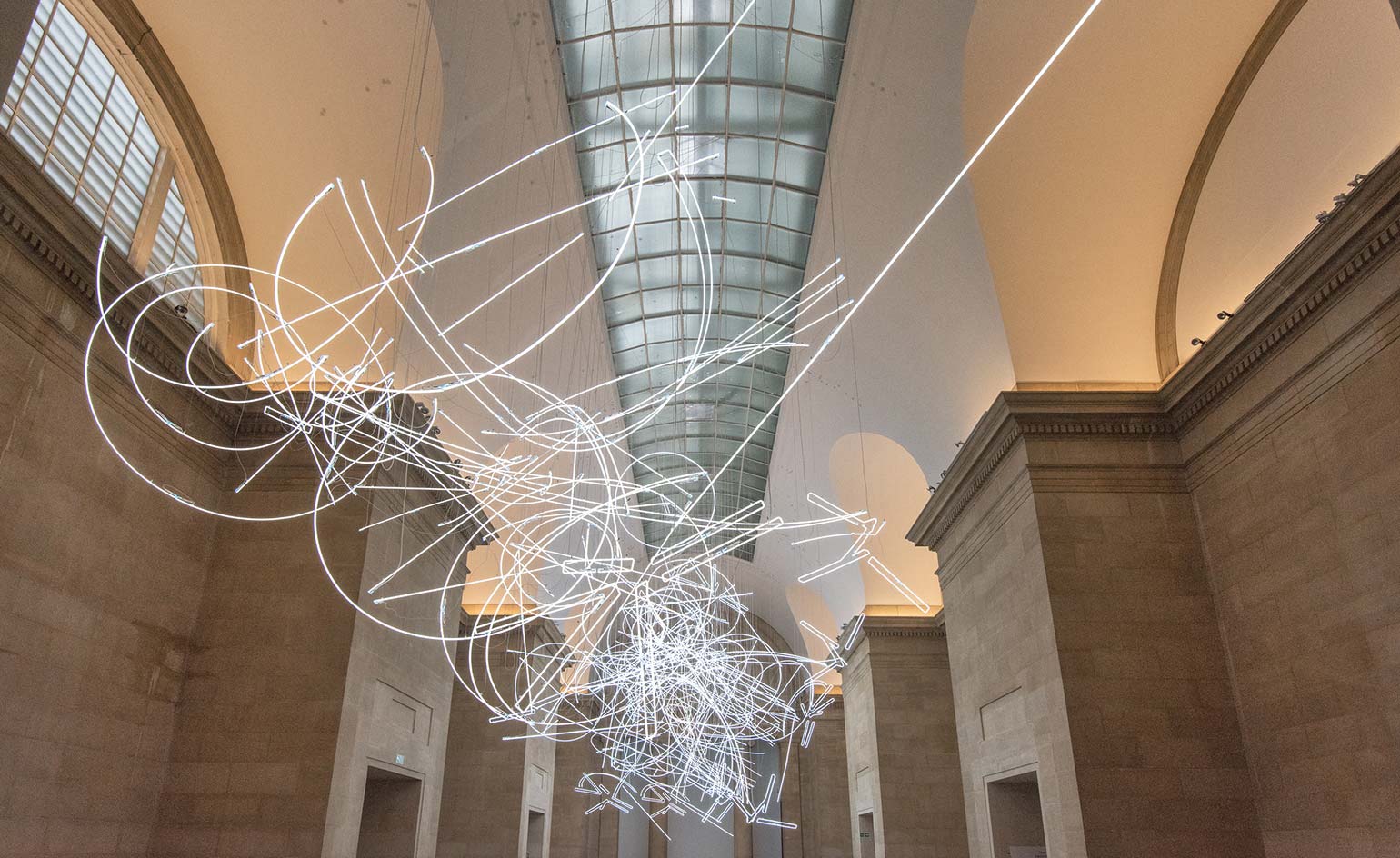
The neon installation fills the Duveen Galleries at Tate Britain
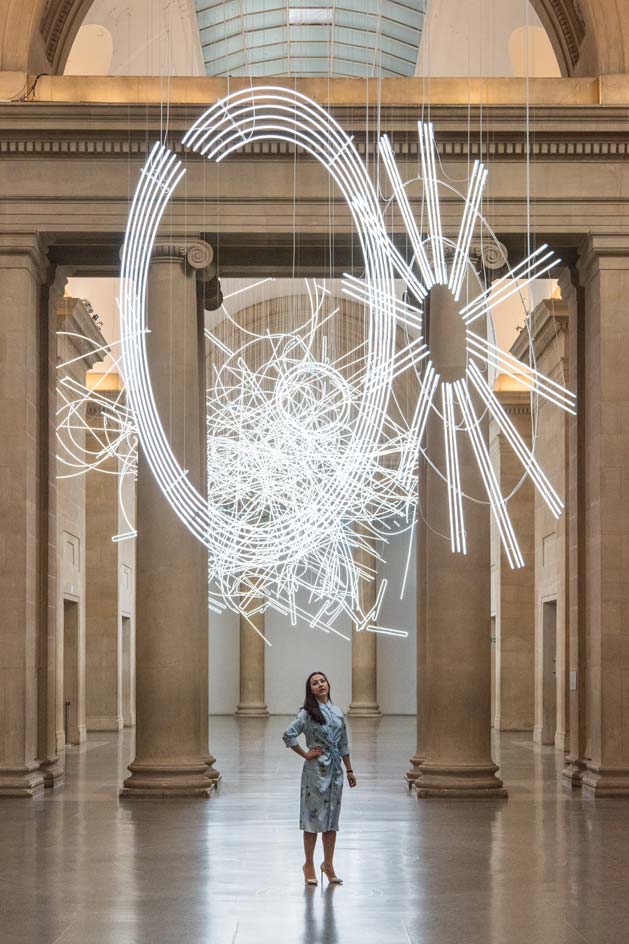
The neon experience builds, from a single ’peep hole’ ring in the South Deveens, through which you can glimpse swirls of radial light and an imposing octagon in the central gallery
INFORMATION
’Tate Britain Commission 2017: Cerith Wyn Evans: Forms in Space...by Light (in Time)’ continues until 20 August. For more information, visit the Tate Britain website
ADDRESS
Millbank, Westminster
London SW1P 4RG
Receive our daily digest of inspiration, escapism and design stories from around the world direct to your inbox.
Elly Parsons is the Digital Editor of Wallpaper*, where she oversees Wallpaper.com and its social platforms. She has been with the brand since 2015 in various roles, spending time as digital writer – specialising in art, technology and contemporary culture – and as deputy digital editor. She was shortlisted for a PPA Award in 2017, has written extensively for many publications, and has contributed to three books. She is a guest lecturer in digital journalism at Goldsmiths University, London, where she also holds a masters degree in creative writing. Now, her main areas of expertise include content strategy, audience engagement, and social media.
-
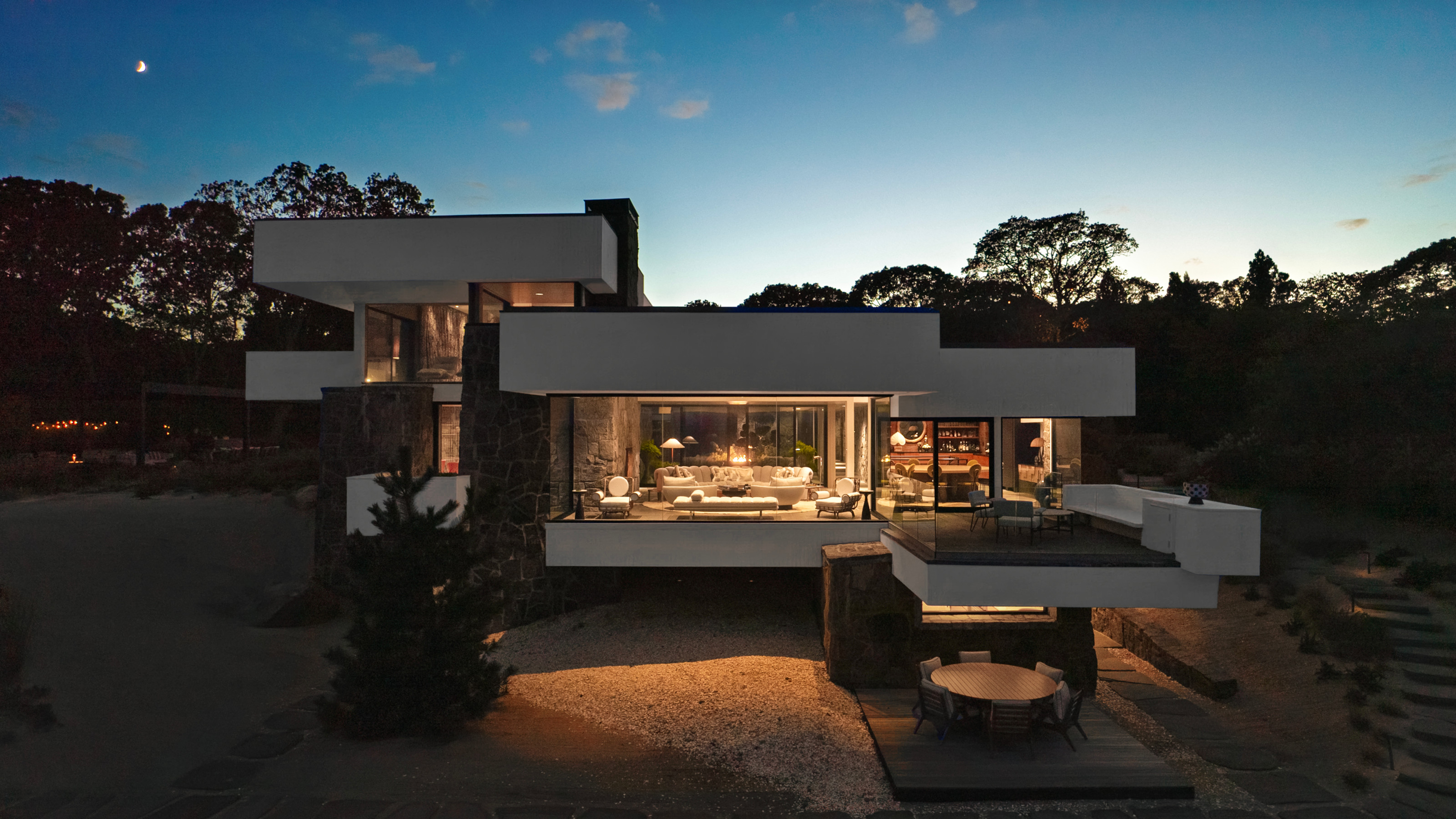 Modernism for sale: a Norman Jaffe-designed icon on Shelter Island hits the market
Modernism for sale: a Norman Jaffe-designed icon on Shelter Island hits the marketThe Osofsky House epitomised the glamour of high-end 70s modernism on Long Island. Now updated and refurbished, it’s back on the market for the first time in over two decades
-
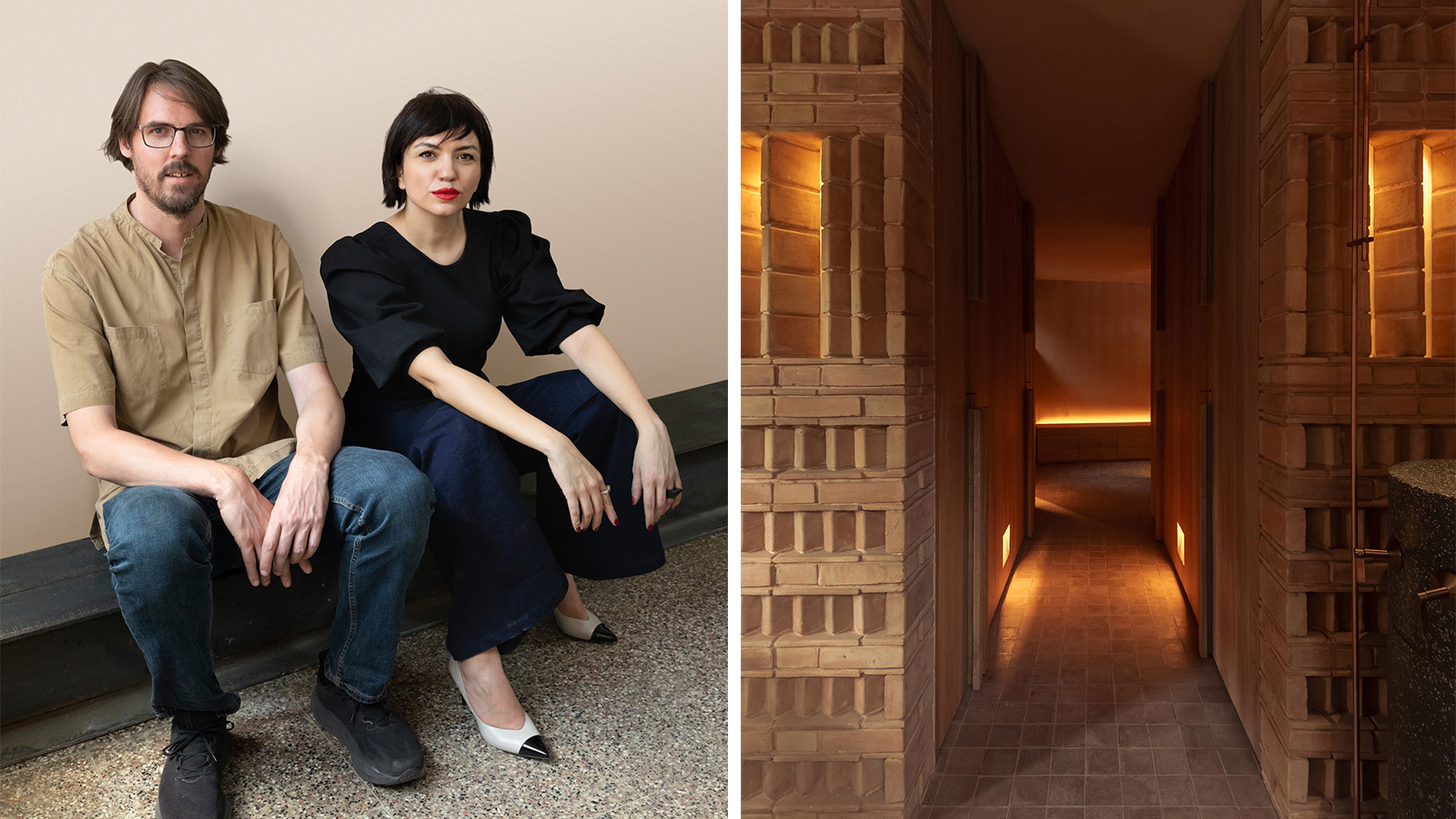 Discover Locus and its ‘eco-localism' - an alternative way of thinking about architecture
Discover Locus and its ‘eco-localism' - an alternative way of thinking about architectureLocus, an architecture firm in Mexico City, has a portfolio of projects which share an attitude rather than an obvious visual language
-
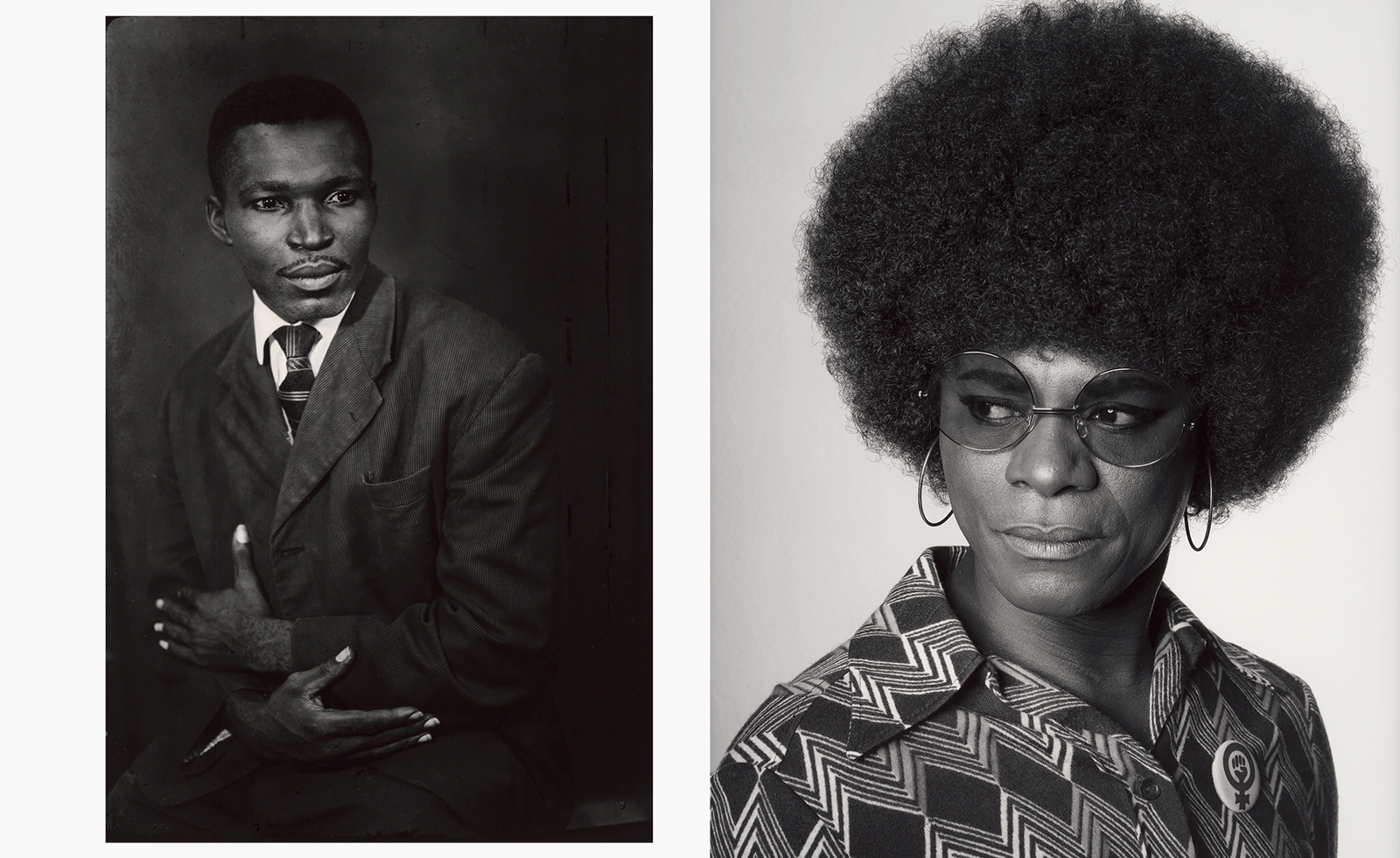 MoMA celebrates African portraiture in a far-reaching exhibition
MoMA celebrates African portraiture in a far-reaching exhibitionIn 'Ideas of Africa: Portraiture and Political Imagination' at MoMA, New York, studies African creativity in photography in front of and behind the camera